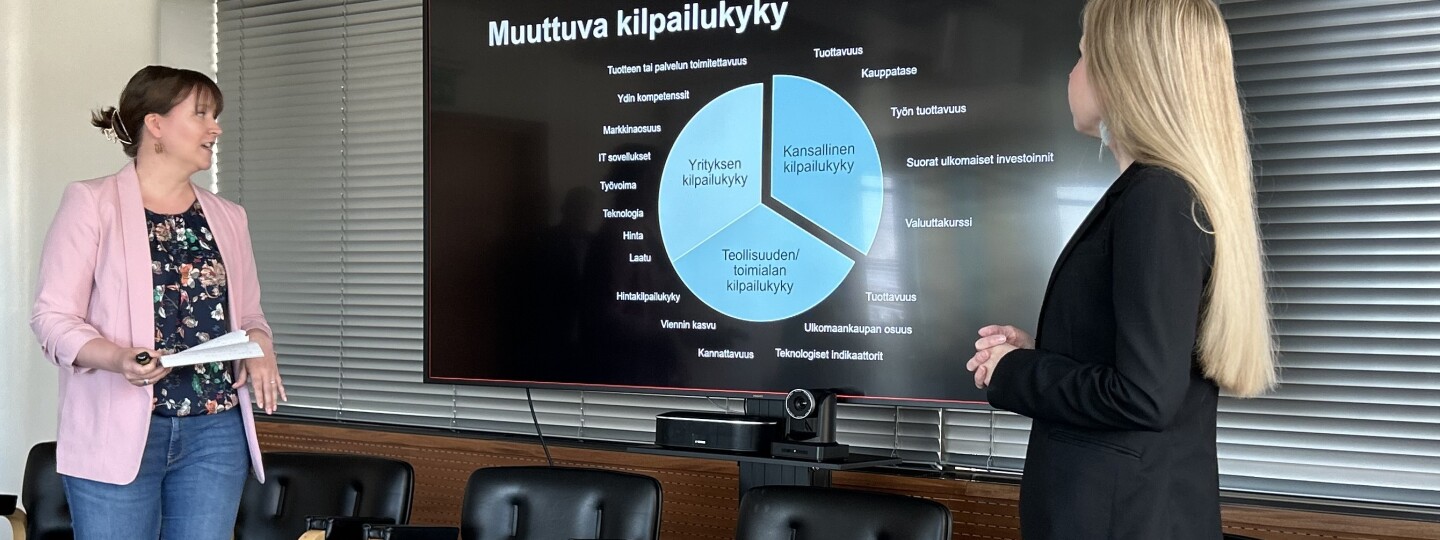The Pan-European Institute and the Confederation of Finnish Industries jointly organised a webinar on competitiveness and future challenges for the economy. The webinar summed up the main findings of the TULEVA project, and the topic was explored further during a panel discussion. Two main themes emerged during the panel discussion: the importance of innovation and regulatory frameworks.
The TULEVA project aims to examine the changing economic trends caused by megatrends and sudden disruptions in the global economy and their effects on the primary Finnish export industries. The project examined this problem at the European Union, the Nordic, and Finnish levels. At the EU level, the operators have faced challenges regarding effective regulation and dysfunctional dialogue between politicians and businesses. Nordic operators also identify the problems with fair and efficient regulation frameworks as critical business challenges. However, at the Nordic level, they also emphasized reducing dependencies on third parties as one of the central business objectives in the current climate. The Finnish operators identified two main challenges for businesses: the scarcity of information sharing and the lack of development activities.
These findings were explored further as the panelists, each bringing their unique perspectives from various backgrounds, shared their insights. The panel was moderated by Timo Vuori from the Confederation of Finnish Industries, and the panel included five people: Jarmo Heinonen from Business Finland, Antti Saarela from Outokumpu Oyj, Ilkka Saarinen from Ministry for Foreign Affairs (Finland), Johanna Sipola from Chambers of Commerce and Ari Viitanen from Carinafour Solutions Oy.
The panel identified innovations as a key challenge to maintaining Finland’s competitiveness. Sipola pointed out that competitiveness is vital for the business environment, which can be achieved through innovation and security considerations in the future. Viitanen added that competitiveness should be understood as a continuous endeavor in which investments play a crucial role. Both panelists underlined that Finnish businesses should be bold and do things their way to succeed in international markets. Heinonen, on the other hand, wondered whether Finnish companies have become passive in regard to research and development due to the slow economic growth during the last decades. He summarized that there’s an outcry for innovations and skilled management.
The other theme that was brought up during the panel discussion was the regulatory framework. The panelists agreed on the urgent need to address the number of problems to make the regulatory framework fair and effective. Saarela explained how unfair regulations and market distortions have affected the steel industry, which has had a significant impact on their business. Saarinen highlighted that regulations are one of the most important factors when it comes to competitiveness. According to Saarinen, rather than focusing on limitations, adopting a mixture of carrot and stick would be more fruitful as this would create incentives to develop Finland’s competitiveness in the future.
You can read the TULEVA report in full here.

